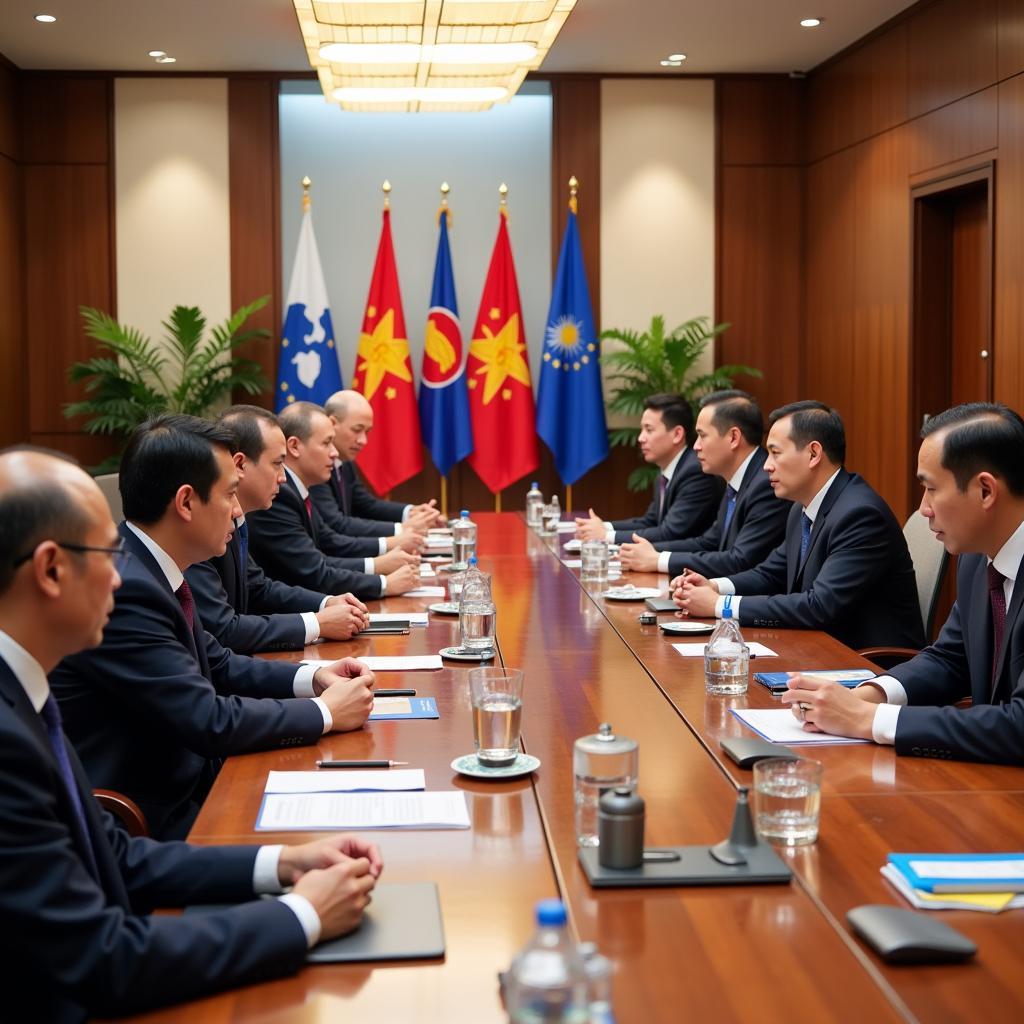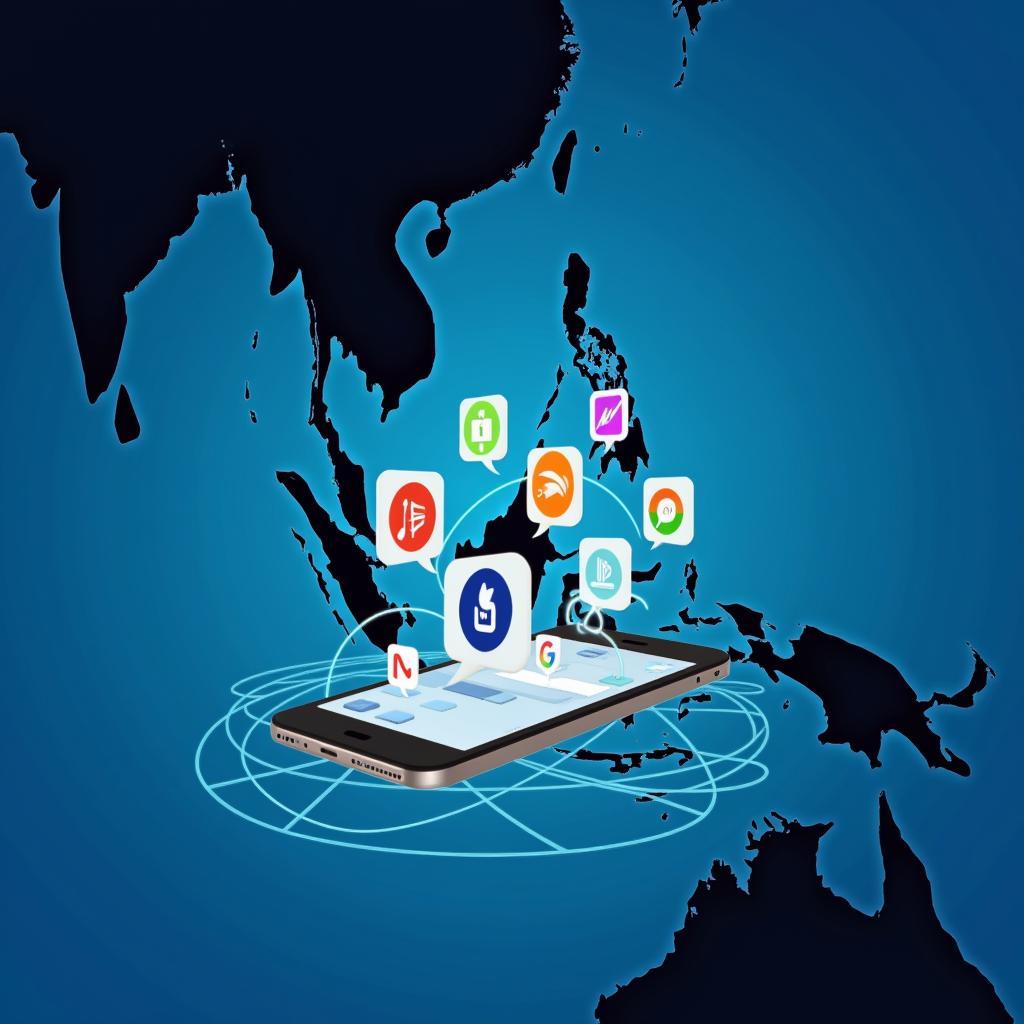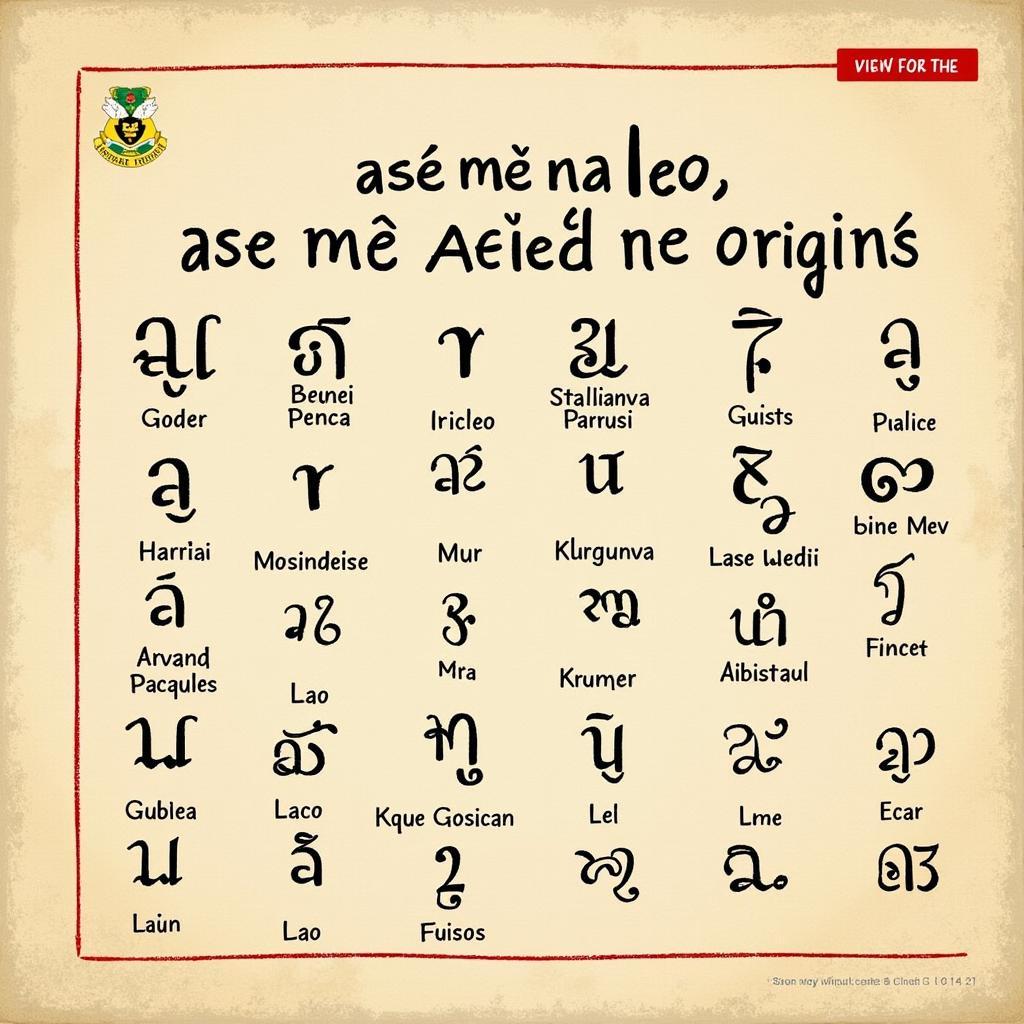ASEAN global presence is increasingly significant in the 21st century. The Association of Southeast Asian Nations (ASEAN) has emerged as a dynamic force, shaping global economics, politics, and culture. This article explores the multifaceted aspects of ASEAN’s global integration, examining its progress, challenges, and future prospects.
Economic Powerhouse: ASEAN’s Global Economic Integration
ASEAN’s economic influence is undeniable. With a combined GDP exceeding $3 trillion, ASEAN represents a major player in international trade. Its strategic location, youthful population, and abundant natural resources contribute to its economic dynamism. The ASEAN Economic Community (AEC) further strengthens this position by promoting free flow of goods, services, investment, and skilled labor within the region. This integration fosters a competitive and interconnected market, attracting global businesses and driving economic growth.
- Reduced trade barriers facilitate cross-border commerce.
- Increased foreign direct investment fuels development.
- Enhanced regional connectivity improves logistics and infrastructure.
Political Dynamics: ASEAN’s Role in Global Governance
ASEAN plays a vital role in maintaining regional stability and promoting peaceful cooperation. Its commitment to dialogue and diplomacy fosters a climate of trust and understanding among member states. ASEAN’s centrality in regional forums like the East Asia Summit and the ASEAN Regional Forum underscores its growing influence in global governance. The organization’s principle of non-interference in internal affairs, while sometimes criticized, allows for a flexible and pragmatic approach to addressing regional challenges.
- ASEAN-led mechanisms promote peaceful conflict resolution.
- Collaborative efforts address transnational issues such as terrorism and climate change.
- Engagement with major powers strengthens regional security architecture.
 ASEAN Political Summit Meeting
ASEAN Political Summit Meeting
Cultural Exchange: ASEAN’s Rich Tapestry on the World Stage
ASEAN’s cultural diversity is a source of strength and pride. From ancient temples to vibrant festivals, the region boasts a rich tapestry of traditions, languages, and arts. ASEAN promotes cultural exchange through educational programs, tourism initiatives, and artistic collaborations. This intercultural dialogue fosters mutual understanding and appreciation, enriching the global cultural landscape.
- Preservation of traditional arts and crafts strengthens cultural identity.
- Promotion of cultural tourism enhances economic opportunities and cross-cultural understanding.
- Educational exchanges foster people-to-people connections.
“ASEAN’s cultural heritage is a treasure trove that needs to be shared with the world,” says Dr. Anya Sharma, a renowned anthropologist specializing in Southeast Asian cultures. “The region’s diversity offers invaluable insights into human creativity and resilience.”
Challenges and Opportunities: Navigating the Global Landscape
While ASEAN has made remarkable progress, it faces challenges in navigating the complex global landscape. Economic disparities among member states, territorial disputes, and the rise of geopolitical tensions require careful management. However, ASEAN’s commitment to regional cooperation and its ability to adapt to changing circumstances position it well to overcome these challenges and seize future opportunities.
Professor Michael Tan, a leading expert on ASEAN affairs, notes, “ASEAN’s strength lies in its ability to forge consensus and find common ground among diverse nations. This collaborative spirit will be crucial in addressing future challenges.”
Conclusion: ASEAN’s Continued Ascent in the Global Arena
ASEAN’s global influence is undeniable. Its economic dynamism, political relevance, and cultural richness contribute significantly to the global landscape. While challenges remain, ASEAN’s commitment to regional cooperation and its adaptive capacity position it for continued success in the global arena. The ASEAN global community will continue to be a driving force in shaping the future of the region and the world.
FAQ
- What is ASEAN’s role in the global economy?
- How does ASEAN contribute to regional stability?
- What are some of the cultural highlights of ASEAN?
- What are the main challenges facing ASEAN?
- What is the future outlook for ASEAN’s global engagement?
- How does ASEAN promote regional connectivity?
- What are the key principles of ASEAN’s foreign policy?
For further assistance, please contact us at Phone Number: 0369020373, Email: aseanmediadirectory@gmail.com, or visit us at our address: Thon Ngoc Lien, Hiep Hoa, Bac Giang, Vietnam. We have a 24/7 customer service team.


